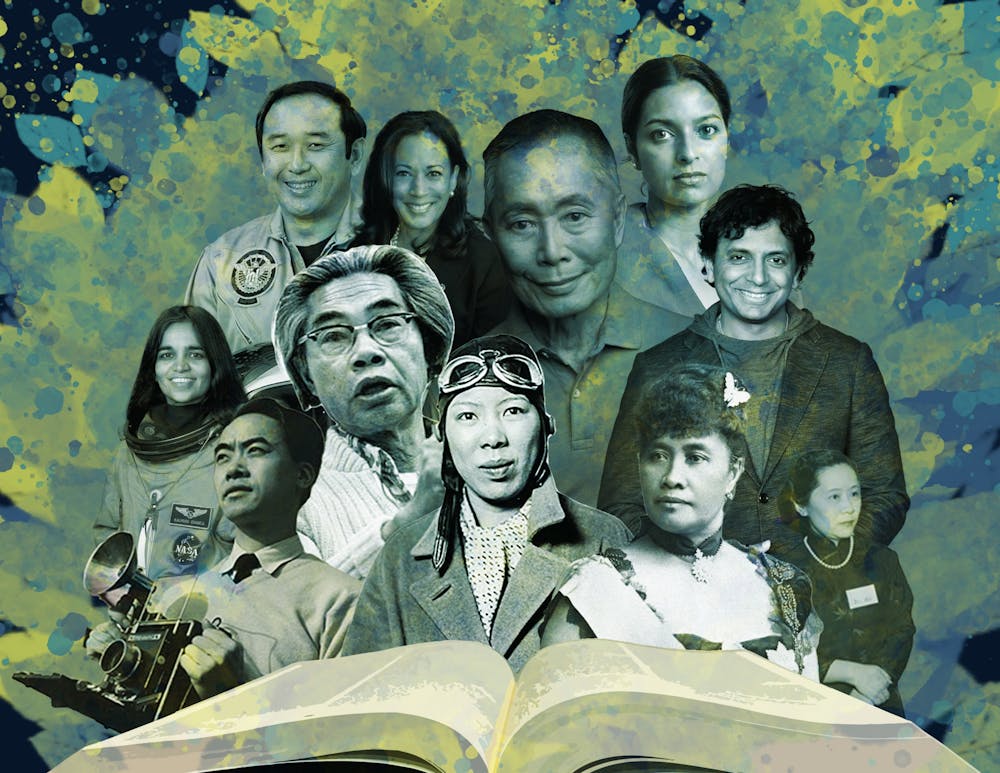When she was a student at William S. Talbot Elementary, Keira Lee was only one of three Asian American children at the school. Without proper representation in the classroom, tales from her Chinese immigrant grandparents served as the only source of Asian American history education she received as a child.
“I mostly learned about my culture through my family,” Lee said.
Now an 18-year-old Buchholz High School senior, Lee applied what she’s learned from her family to launch the Asian American Student Alliance, an organization dedicated to providing a safe space for her high school’s Asian American and Pacific Islander student population.
A new bill signed into Florida law could allow students like Lee to see their efforts reflected on a statewide level with the introduction of AAPI history into the public school system.
Gov. Ron DeSantis signed House Bill 1537 into law May 9, requiring AAPI history in K-12 curriculum. The legislation’s enactment marks a milestone in a two-year-long battle to make AAPI history a mandatory part of Florida public school education. Make Us Visible Florida Director Mimi Chan led the state’s effort to integrate AAPI history into K-12 classrooms.
“It took a lot of work and determination in order to get this passed,” Chan said. “Asian American history is American history.”
Florida is the first Republican-led state to pass legislation requiring AAPI instruction in primary and secondary schools. The bill includes education on World War II Japanese internment camps and the immigration, citizenship, civil rights, identity, culture and contributions to American society of the AAPI community as part of the impending curriculum.
Chan, an Orlando-based activist and martial arts instructor, felt compelled to spearhead the initiative after she witnessed the drastic increase in Asian American hate crimes and discrimination after the COVID-19 pandemic.
“I wanted to see what could be done to stop these attacks, to be preventative, to ensure our community was safe,” she said.
Chan encountered countless obstacles in getting her legislation signed into law. Her original bill, House Bill 287, passed in the House but died in the Senate. However, she was able to have her legislation's language added to HB 1537 and Senate Bill 1430.
She felt grateful to receive strong bipartisan support for AAPI instruction in a state plagued by ongoing legislative debates concerning education, she said.
The enactment of this bill follows The Florida Department of Education's controversial January decision to reject a preliminary pilot version of the College Board's Advanced Placement African American Studies course.
Like Chan, Gainesville educators and university students are also excited to see AAPI history and culture represented through policy.
Clementine Dela Cruz, a 21-year-old UF psychology senior, grew up in Gainesville in a Filipino American household. Primarily learning inside predominantly white K-12 classrooms, she never heard her family’s country of origin uttered during lessons, she said.
She sought to learn more about her Filipino heritage when she enrolled at UF by joining the Asian American Student Union. Today, she serves as the vice president of education for the organization.
“It wasn't until I came to UF that I was able to surround myself with people who came from my same culture or other similar cultures, and was able to really indulge in what it meant to be Asian American,” she said.
Dela Cruz hopes the recently passed AAPI K-12 education bill will foster a classroom environment that allows students to connect with their AAPI identity before entering adulthood.
“It's really important that students have the opportunity to learn more about where their ancestors came from [and] what their ancestors have contributed to this country,” she said.
UF Food and Resource Economics Associate Professor Zhengfei Guan was born in China and has two children who attend public school in Florida.
The bill’s passing is a step in the right direction, he said.
“Education is really the cornerstone of the foundation of this country,” he said. “It gives you a pair of glasses through which you look at the world, so it affects everything.”
Guan encountered stereotypes while living in the U.S. for the past 16 years, including being treated like a perpetual foreigner and a model minority.
The model minority myth portrays Asian Americans as uniformly successful and academically inclined, overlooking the diverse experiences and challenges they may face as a marginalized community. He hopes more AAPI studies in K-12 classrooms will help dismantle the harmful stereotypes affecting Asian Americans.
However, Guan anticipates challenges with integrating AAPI history into K-12 curriculum. Outside the classroom, the Florida Legislature is supporting bills like Senate Bill 264, barring anyone born in China and not yet a United States citizen from purchasing real estate in Florida.
Guan fears SB 264, which DeSantis signed into law last week and goes into effect July 1, will encourage racial profiling and discrimination toward Asian Americans seeking to buy property in Florida, he said.
“My children will be affected,” he said. “They're born and raised in this country and they call Florida home, but they are treated differently — and that is heartbreaking.”
The enactment of both bills sends a conflicting message about the status of Asian Americans living in the U.S., he said, as if members of the AAPI community, especially of Chinese descent, cannot be fully trusted.
Guan also worries about the upcoming curriculum content. Although he's pleased World War II Japanese internment camps are included in the required curriculum, he said he wished the bill language also mentioned the Chinese Exclusion Act. The discriminatory law enacted in 1882 placed a 10-year ban on Chinese laborers immigrating to the U.S.
“That's something major in the history for the Chinese community,” he said. “I think that should be perfectly written into the bill, but it's not.”
Although HB 1537 goes into effect July 1, the Florida Department of Education and Florida School Boards Association will form the curriculum over the next few years. Make Us Visible Florida will continue monitoring the curriculum’s development, Chan said.
Contact Amanda at afriedman@alligator.org. Follow her on Twitter @amandasfriedman.
Amanda Friedman is a senior journalism major and the Enterprise Editor at The Alligator. She previously wrote for the Avenue, Metro and University desks. When she isn't reporting, she loves watching coming-of-age films and listening to Ariana Grande.






